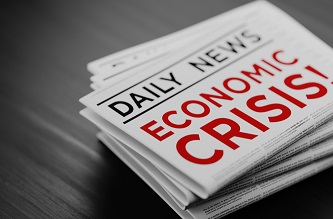Newsweek: America is Headed for a Market Crash! Washington Deserves the Blame

Article by Justin Haskins in Newsweek
Predicting economic booms and busts is often an exercise in futility. Back in the fall of 2019, when the U.S. economy was flying high, who could have foreseen the economic crisis, government lockdowns and fear caused by the COVID-19 pandemic?
There are, however, several key indicators that have reliably warned us when the economy is about to experience a large crisis—and one of the most important just flashed red for the first time in decades.
According to data from U.S. Department of Housing and Urban Development (HUD), the median sales price for houses sold in the United States in the second quarter of 2021 was $374,900, the highest figure ever recorded and a 4.51 percent increase compared to the final quarter of 2020.
Of course, higher housing prices can often be a positive indicator, reflecting strong economic growth. But when housing prices are increasing as rapidly as they are now, it's typically a sign of severe distortions in the financial system, stock market and/or wider economy.
Consider the three other times in recent history when housing prices increased at rates similar to today's.
The most important historical example is the 1973–74 crash. That period was marked by high inflation that touched almost every part of the U.S. economy, a problem America is once again facing.
In 1973, median housing prices increased by more than 16 percent over a 12-month period. From the start of 1973 to the end of 1974, the stock market plummeted by 46 percent. Unemployment soared, reaching 8.5 percent in May 1975.
A decade later, in late 1987, the median sales price for houses sold had increased by more than 17 percent from the previous year. During that same period, the stock market experienced one of its largest crashes in history, dropping 22 percent in one day. Housing sales soon went into a steep decline that didn't fully recover until the 1990s.
From the end of 2001 to the first quarter of 2007, housing prices rocketed upward, fueled in large part by loose Federal Reserve monetary policies, regulatory changes and risky lending practices by financial institutions—all of which are concerns again today.
From 2001 to the first quarter of 2007, the median housing sales price increased by $86,300, a 50 percent gain. Housing prices then began to drop at an alarming rate, triggering one of the worst financial crises and stock market crashes since the Great Depression.
Spurred by huge amounts of money-printing and stimulus programs from the federal government, housing prices increased throughout 2020. They never experienced a large drop that could explain why we're seeing prices shoot up in 2021.
The primary cause of rising housing prices is not a mystery. Since the start of the coronavirus pandemic, the Federal Reserve and federal government have kept interest rates at rock-bottom levels, created trillions of new dollars and encouraged financial institutions to make riskier loans as a way to keep the economy afloat. The Fed and national government have never before created this much money in such a short period.
These policies have resulted in rampant economic distortions across a variety of important industries. These distortions have made homes and everyday goods and services more expensive than ever.
No other explanation can account for the unprecedented housing price increases, stock market gains and large ......
To read this article in Newsweek in its entirety, click here.